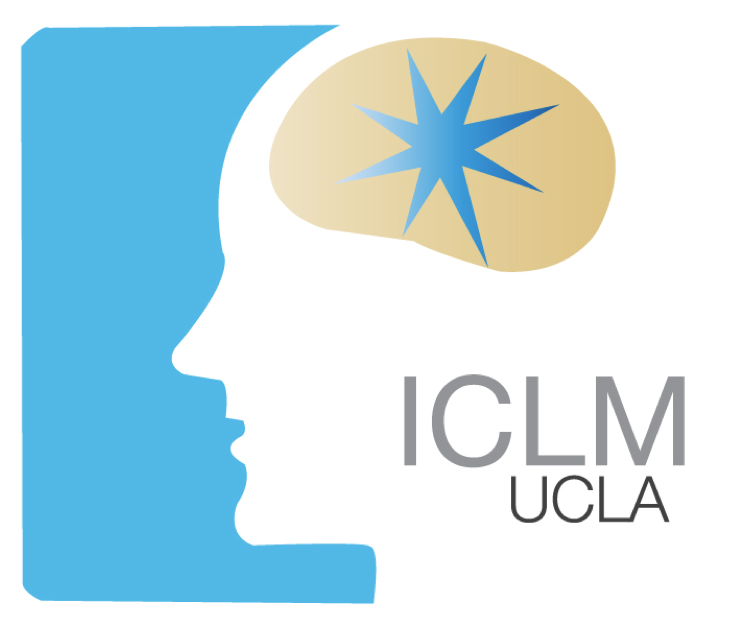UCLA Integrative Center for Learning and Memory
UCLA’s Integrative Center for Learning and Memory (ICLM) includes a diverse, highly collaborative community
of neuroscientists exploring some of the most fundamental questions in science:
how do we acquire, allocate, store, recall and alter our memories?
What are the causes of cognitive deficits?
What molecular, cellular, systems, and cognitive mechanisms are involved in these fascinating processes?
Answers to these questions are not only transforming our vision of self, they are also having a profound impact in nearly every aspect of the human experience.
By its very nature, this research is integrative and cross-disciplinary, incorporating molecular, cell, systems and behavioral level approaches to study synapses, neurons, circuits, brains and behavior.
The ICLM provides a cohesive identity and organizational structure that facilitates collaborations and interactions amongst a large community of scientists,
including faculty, post-doctoral fellows and graduate students. ICLM is an inclusive organization.
If you would like to join the Center simply contact us.
Highlights
The 2024 Southern California ICLM Learning and Memory Symposium!!!
The meeting celebrates learning and memory in Southern California! The next meeting will take place at UCLA (NRB Auditorium) on March 11, 2024 (Mark your calendars)!
We welcome Alicia Izquierdo,
Carlos Portera-Cailliau, Laura DeNardo, and Sotiris Masmanidis, the newest members of our ICLM Council
We welcome Mario Dipoppa, a new assistant professor in the Department of Neurobiology!
Mario obtained his Ph.D. at Pierre and Marie Curie University where he developed neural circuit models underlying working memory, under the guidance of Boris Gutkin. He then joined as a postdoc in the laboratory of Kenneth Harris and Matteo Carandini at University College London and was the recipient of the Marie Curie Fellowship. As a postdoc, Dr. Dipoppa combined large-scale neural recordings and computational models to study the mouse visual system. He then served as an Associate Research Scientist at the Center for Theoretical Neuroscience of Columbia University advised by Ken Miller. There, he combined deep learning with dynamical systems methods to study fundamental properties of visual computations. Mario’s computational neuroscience laboratory continues to investigate how neural networks and dynamics in the cerebral cortex give rise to neural computation.
ICLM In House Grant and Paper Reviews
This program is intended to help ICLM investigators get feedback from their colleagues on upcoming grant applications of papers, so that they can address potential weakness before submission.
Biology of Learning and Memory
is one of several graduate and undergraduate courses sponsored by ICLM.
ICLM Journal Club
meets weekly and is a great opportunity for critical but friendly and constructive discussions of the later findings in the field.
The ICLM Distinguished Lectures
are yearly events sponsored by ICLM. They are not a "latest-research-findings-lecture", but instead are focused on discussions of the scientific process illustrated by the major findings of leading figures in the field of learning and memory. Past lecturers include Richard F. Thompson (2002), (2003), Gary Lynch (2004), Stephen Lisberger (2005), Terrence Sejnowski (2008), Larry Squire (2009), Thomas Carew (2010), Greg Quirk (2011), Mark Mayford (2012), Robert Malinow (2013), Leslie Ungerleider (2014), Susumu Tonegawa (2015), Roger Nicoll (2016), Kay Tye (2017), Gyorgy Buzsaki (2018), Sheena Josselyn (2019). Richard Huganir (2019), Laura Colgin (2020), Eric Klann (2020), Tim Behrens (2022) and Erin Schuman (2023), Elizabeth Buffalo (2024)
The new ICLM Science Prize
recognizes ICLM post-doctoral fellows and graduate students that made significant contributions to our community.
Rich local learning and memory community.
We are fortunate to have in Los Angeles other universities that also have strong learning and memory programs, including Caltech, UCSD, USC and UCI
Large and exciting learning and memory community
UCLA has one of the largest (>300 neuroscience laboratories) and most exciting neuroscience communities in the world. Just about every field of brain sciences, from clinical psychology to molecular neuroscience, is represented at UCLA. Despite its size, the academic environment is very collegial and interactive, with several seminar programs, journal clubs, retreats and special events, which provide countless opportunities for interactions and interchange of ideas.
 I.C. Learning & Memory
I.C. Learning & Memory






